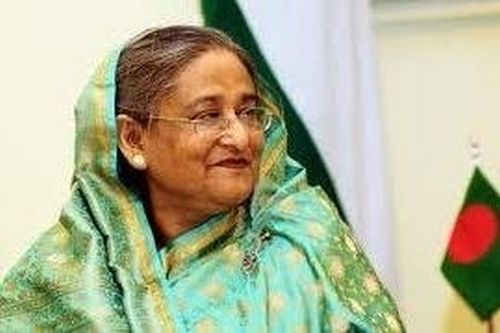Washington: Leaders of the US, India, Australia and Japan did discuss the “challenge” posed by China during the first meeting of the Quad, and they made clear that none of them have any “illusions” about Beijing, US National Security Advisor Jake Sullivan has said.
Addressing a White House briefing on Friday soon after the historic virtual Quad summit between US President Joe Biden, Prime Minister Narendra Modi, Australian Prime Minister Scott Morrison and Japanese Prime Minister Yoshihide Suga, the top American official said the four leaders have agreed to hold an in-person summit later this year.
The leaders addressed key regional issues, including freedom of navigation and freedom from coercion in the South and East China seas, the North Korea nuclear issue and the coup and violent repression in Myanmar, Sullivan said.
“Over the course of the meeting, a sense of optimism for the future, despite the hard times were in, was on full display.
“The four leaders did discuss the challenge posed by China, and they made clear that none of them have any illusions about China, but today was not fundamentally about China,” Sullivan said ahead of a crucial meeting with top Chinese officials.
Sullivan, who along with along with the Secretary of State Antony Blinken are scheduled to meet their Chinese counterparts Yang Jiechi, a member of the Politburo of the ruling Communist Party of China and State Councillor and Foreign Minister Wang Yi in Anchorage, Alaska on March 18-19.
“This is our effort to communicate clearly to the Chinese government how the United States intends to proceed at a strategic level, what we believe our fundamental interests and values are, and what our concerns with their activities are — whether it’s on Hong Kong, or Xinjiang, or in the Taiwan Strait — or, frankly, the issues that we heard today from our Quad partners: their coercion of Australia, their harassment around the Senkaku Islands, their aggression on the border with India,” Sullivan said.
The Quad summit took place as the China and India are involved in a military standoff along the Line of Actual Control (LAC) in eastern Ladakh since May last year. After lengthy rounds of talks, the two sides simultaneously withdrew troops from the Pangong Lake area last month while talks are on for the withdrawal of soldiers from the rest of the friction points along the LAC.
In a joint statement, the Quad leaders pledged to strengthen cooperation on the “defining challenges of our time.”
“We bring diverse perspectives and are united in a shared vision for the free and open Indo-Pacific.?We strive for a region that is free, open, inclusive, healthy, anchored by democratic values, and unconstrained by coercion,” said the joint statement titled ‘The Spirit of the Quad’.
Sullivan said the four leaders also spoke to the competition of models between autocracy and democracy and expressed their confidence that despite setbacks and imperfections, democracy is the best system to deliver for people and to meet the economic, social and technological challenges of the 21st century, he said.
Sullivan said much of the focus during Friday’s Quad summit was on pressing global crises, including the climate change and COVID-19. With respect to COVID-19, the four leaders made a massive joint commitment, he told reporters.
“With Indian manufacturing, US technology, Japanese and American financing and Australian logistics capability, the Quad committed to delivering up to 1 billion doses to ASEAN, the Indo-Pacific and beyond by the end of 2022,” said the top American national security advisor.
The leaders also launched a set of working groups, including an emerging technology group that will help set standards in key technologies like 5G and artificial intelligence, and another on cyber space that will help the four countries meet this growing threat.
“These groups will deliver results by the time of the summit that will happen before the end of the year,” Sullivan said.
“The Quad is now a critical part of the architecture of the Indo-Pacific, and today’s summit also kicks off an intensive stretch of diplomacy in the region,” he said.
Secretary of State Blinken and Defence Secretary Lloyd Austin will travel to Japan and South Korea to meet with their counterparts in a 2-plus-2 format, he noted.
“Make no mistake; today is a big day for American diplomacy. This summit is a big deal for the president and for the country, and we are looking forward to the work ahead,” Sullivan said.
Responding to a question, Sullivan said that the four leaders discussed both the recent cyber-attacks and semiconductors in the course of the conversation.
The leaders agreed as part of the emerging technology working group to look at this supply chain question, including as it relates to semiconductors, to make sure that they don’t have shortages of critical materials going forward, whether it’s semiconductors or rare earths.
He said the impetus behind the new cyber working group is not just the SolarWinds incident or the Microsoft Exchange incident, both of which the United States is responding to with urgency, but also cyber-attacks that have hit Japan, India and Australia just in the past few weeks and months.
“This is a common challenge that we face from both state actors and non-state actors, and we do intend to make the Quad a central vehicle for cooperation on cyber,” Sullivan added.







